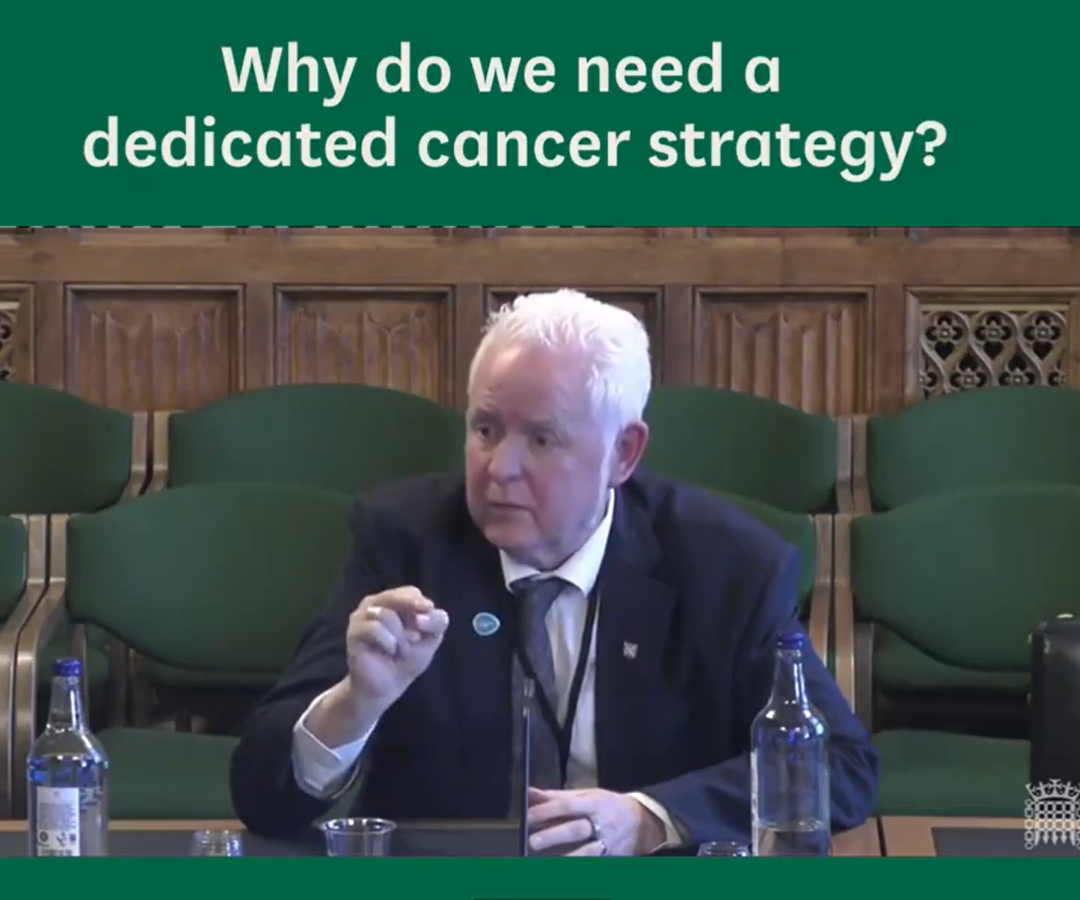The Value of Cancer Plans: ECO provides evidence to UK House of Commons Inquiry
15 January 2024
The European Cancer Organisation has provided evidence to the UK Parliament’s House of Commons Health Select Committee and its inquiry into ‘Future Cancer’.
The Inquiry is investigating "... the innovations with the greatest potential to transform cancer diagnosis and treatment for patients in the short, medium and long term, and it will examine how innovations in diagnosing and treating cancer can best be transitioned into frontline clinical settings. It will also explore international examples of best practice.”
The European Cancer Organisation and the American Society of Clinical Oncology were invited to give oral evidence at a hearing of the Committee which took place on Tuesday 9 January 2024.
Professor Mark Lawler, ECO Board Member 2020-23 and Co-Chair of the ECO Special Network on the Impact of Covid-19 on Cancer, made several key points to the Committee, including:
- Recognising the abundant opportunity for all countries to do better on early detection, and diagnosis of cancer
This is especially the case in respect to scientific and technological developments including:
- recently agreed EU level recommendations promoting screening programmes for lung, prostate, and gastric cancer, alongside the previously recommended programmes for breast, cervical and colorectal cancer;
- artificial intelligence applications to support improvements in early detection, screening, and diagnosis processes; and,
- the growing applicability of genomic tumour testing to enable greater personalisation of cancer treatment.
To improve uptake of such innovations requires addressing the education and training needs of healthcare professionals, and tackling persistent workforce shortages, such as in pathology.
- Promoting the usefulness of goal-orientated cancer policy
Setting clear goals in any field of activity provides clarity, planning certainty and political accountability. It also unites diverse stakeholders by establishing common goals to which all must play a part. It can also serve as a vital mechanism for addressing inequalities in cancer care via its universal approaches. Under-served communities MUST be addressed if a universal goal is to be achieved.
Examples from Europe’s Beating Cancer Plan were provided in this context, including:
- eliminating HPV-caused cancers;
- creating a tobacco-free generation in Europe, where less than 5% of the population uses tobacco by 2040; and,
- ensuring that 90% of the EU population who qualify for breast, cervical and colorectal cancer screenings are offered screening by 2025.
The value of national cancer plans was promoted in this respect.
- Opportunities for international collaboration
Cancer knows no borders, and neither should our cancer research and policy collaborations.
In this spirit, ECO’s recently published ‘Time to Accelerate: Together Against Cancer’ publication, supported by more than 70 organisations from across Europe and around the world, has articulated a shared enthusiasm in the European cancer community for the UK to be welcomed into EU level cancer cooperations. Under Europe’s Beating Cancer Plan and the EU Research Mission on Cancer, these would include:
- the development of an EU Network of Comprehensive Cancer Centres;
- the creation of a European Health Data Space; and,
- dozens of other cooperations available via the EU4Health programme, should the UK associate to this programme in a similar manner to its recent re-connection to the Horizon Europe research programme.
More information about the inquiry is available here.
A recording of the 9 January hearing is available here.


